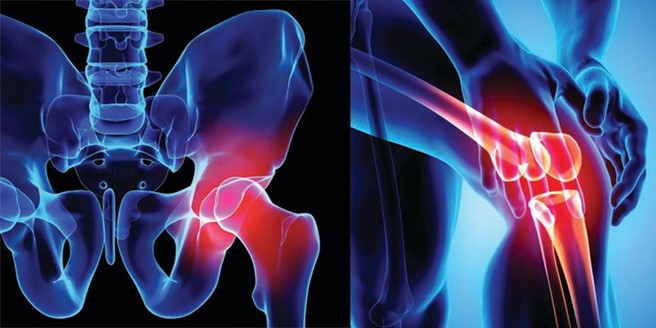Written By: Jason D. Handschumacher, DPT

Enhanced recovery programs require a multidisciplinary team of dedicated professionals, principally involving preoperative education, multimodal pain control, and accelerated rehabilitation; this will be boosted if combined with minimally invasive surgery. The current economic climate and restricted healthcare budget further necessitate brief hospitalization while minimizing costs. These NON-OPERATIVE INTERVENTIONS are the way forward to achieve such requirements. (Ibrahim, 2013)
Be “Brilliant at the Basics”. Total Joint Rehabilitation may not be flashy and make you a Social Media icon but it is the bread and butter we need to be best at. Set yourself apart and be the therapist every patient tells their friends to see – because they will tell them something about you – make it great!
- Therapists are optimally positioned for education and exercise advice
- Establish therapeutic rapport early
- Increased revenue outside of postoperative dollar and visit limits
Immediate Post-Operative care
- Same day and 24 hours discharges – are you and the patient ready?
- Advances in anesthesia speed recovery and return home
- Minimize edema, maximize strength return, gain ROM quickly and safely
- Optimize exercise volume and combine Manual Therapy for best outcomes
Return to Function
- Patient-specific and “mobile” component designs can meet activity goals
- Dislocation (hip) precautions may be a thing of the past
- Strength training is way more than leg raises and 3 sets of 10
Above is a simple exercise I use for high volume ROM and combined knee and hip motion without pain for pre-op and immediate post-operative care. The patient in the video is 48 hours post op and moving great!
If you want to learn more, join my Live Interactive Webinar on October 27th, Total Knee/Hip Arthroplasty: The First 72 Hours, or for my NEW 3-Hour Live Workshops coming soon in 2023 – see you then!
Explore continuing education courses from Jason below:
An Evidence-Based Approach to Treating the Lumbopelvic Complex
Clinical Practice Guidelines for Low Back Pain (LBP)
Simplifying Assessment and Treatment of the Sacroiliac Joint & Hip Dysfunction
Total Knee/Hip Arthroplasty: The First 72 Hours
Visit summit-education.com for more information.
References:
Austin MS, Urbani BT, Fleischman AN, et al. (2017), “Formal Physical Therapy After Total Hip Arthroplasty Is Not Required: A Randomized Controlled Trial.” Journal of Bone and Joint Surgery American. 19;99(8):648-655. doi: 10.2106/JBJS.16.00674.
Berg U, W-Dahl A, Nilsdotter A. (2021). “Fast-Track Programs in Total Hip and Knee Replacement at Swedish Hospitals—Influence on 2-Year Risk of Revision and Mortality.” Journal of Clinical Medicine. 10(8):1680. Doi: 10.3390/jcm10081680
Gwynne-Jones D, Martin G, Crane C. (2017). “Enhanced recovery after surgery for hip and knee replacement patients.” Orthopaedic Nursing. 36(3):203-210.
Ibrahim MS, Alazzawi S, Nizam I. et al. An evidenced-based review of enhanced recovery interventions in knee replacement surgery: Annals of the Royal College of Surgeons. September 2013, Vol 95(6), 386-389.
Klapwijk L, Mathijssen N, Van Egmond J. (2017). “The first 6 weeks of recovery after primary total hip arthroplasty with fast track.” Acta Orthopaedica. 88(2):140-144.
Navathe AS, Troxel AB, Liao JM, et al. (2017). “Cost of Joint Replacement Using Bundled Payment Models.” Journal of the American Medical Association Internal Medicine. doi: 0.1001/jamainternmed.2016.8263. [Epub ahead of print]
Pesavento T, Agner V, Puga ES, et al. (2017), “Comparison of supervised and unsupervised models of physical therapy in total knee arthroplasty: systematic review.” International Physical Medicine and Rehabilitation Journal. 2(5):279‒285. DOI: 10.15406/ipmrj.2017.02.00062
Prakash J, Jianing D, Jiayu F. (2017). “A patient focused technology-enabled program improves outcomes in primary total hip and knee replacement surgery.” Journal of Bone and Joint Surgery. 2(3): e0023. Doi: 10.21061JBJS.OA.16..00023
Wang L, Lee M, Zhang Z, et al. (2016), “Does preoperative rehabilitation for patients planning to undergo joint replacement surgery improve outcomes? A systematic review and meta analysis of randomized controlled trials.” British Medical Journal (Open) ;6:e009857. doi:10.1136/bmjopen-2015-009857.